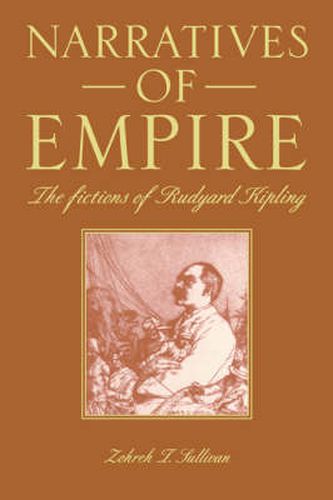Readings Newsletter
Become a Readings Member to make your shopping experience even easier.
Sign in or sign up for free!
You’re not far away from qualifying for FREE standard shipping within Australia
You’ve qualified for FREE standard shipping within Australia
The cart is loading…






Writers whose work reflects the experience of empire betray the anxieties and contradictions at the heart of the imperial enterprise. Zohreh T. Sullivan’s new reading of Rudyard Kipling’s writings about India expands our sense of colonial discourse and recovers the cultural context and recurring tropes in his early journalism and fiction, in Kim, and in his late autobiography. She charts the fragmentation of Kipling’s position as child, as colonizer and as ‘poet of empire’, finding in his representation of childhood’s loss the site of repressed and disavowed desires and fears that resurface in later work. In using Kipling’s troubled intimacy with empire as the link between history and narrative, Sullivan sees in Kipling’s ambivalence his negotiation between the desire for union with his golden ‘best-beloved’ India and the historic imperatives of separation from it.
$9.00 standard shipping within Australia
FREE standard shipping within Australia for orders over $100.00
Express & International shipping calculated at checkout
Writers whose work reflects the experience of empire betray the anxieties and contradictions at the heart of the imperial enterprise. Zohreh T. Sullivan’s new reading of Rudyard Kipling’s writings about India expands our sense of colonial discourse and recovers the cultural context and recurring tropes in his early journalism and fiction, in Kim, and in his late autobiography. She charts the fragmentation of Kipling’s position as child, as colonizer and as ‘poet of empire’, finding in his representation of childhood’s loss the site of repressed and disavowed desires and fears that resurface in later work. In using Kipling’s troubled intimacy with empire as the link between history and narrative, Sullivan sees in Kipling’s ambivalence his negotiation between the desire for union with his golden ‘best-beloved’ India and the historic imperatives of separation from it.